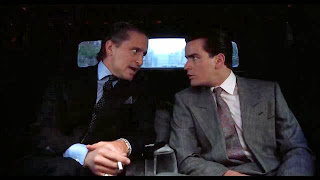by Vince Rogers
Suppose that you were a novice investor, presented with two options for learning to understand the ins and outs of navigating the markets. The first option would be attending regularly scheduled face-to-face meetings with legendary investor Warren Buffet. The other choice presented to you is attending weekly group discussions between beginning, intermediate and experienced investors. Which alternative would you choose?
Warren Buffet is arguably the most successful investor in history. Most up-and-coming investors would probably consider regular interaction with him to be the ultimate choice. However, because of the resources that Mr. Buffet has at his disposal, his risk and reward decisions are based on buying thousands of shares of a stock. The deals that he might suggest to you may prove to be impractical if you can only buy just a few shares.
Conversely, the weekly meetings with a wide range of investors might provide you with exposure to variety of useful information. However, if you have recently inherited millions of dollars and just happen to have an MBA in Finance, you may benefit more from the weekly buffet with Buffet. A combination of both close intimate personal and dynamic group interactions might be the preferable way to obtain the career guidance you seek. Therefore, it is important that you understand how to choose the right trusted Mentor and/or how to join or form an effective Mastermind Group
Defining Mentors and Mastermind Groups
The term Mentor is of ancient origins. Mentor is a figure from Greek mythology who during the Trojan War was the advisor of Telemachus, the son of Odysseus. The modern mentor/mentee relationship can be formal or informal. The fundamental characteristic of the relationship is that a more experienced or knowledgeable person (Mentor) provides some form of guidance to another person (Mentee).
A Mastermind Group is a more recent conception. The idea derives from a term introduced by Napoleon Hill in the classic self-development book “Think and Grow Rich”. However, such advisory council type relationships have existed as long as human beings have formed organizations. Hill defined a Mastermind Group as follows: "The coordination of knowledge and effort of two or more people, who work toward a definite purpose, in the spirit of harmony."
The concept of the Mastermind Group had been out of fashion for a time. Yet with the advent of other collaborative business and professional tools such as Social Networking, Coworking, and Crowdfundingthe use of collaborative tools and resources are now all the rage. Conversely, until lately the Mentor concept has been in vogue. Yet in recent years the mentoring model and the associated expectations of such relationships are now being regarded by some as outdated and unrealistic.
Finding a Mentor or a Mastermind Group.
As stated earlier, I don’t think the choice is really an either or proposition. Mentoring relationships are valuable and successful ones are priceless. Mentoring relationships may come about organically through a chance meeting or via an introduction by a mutual friend. They may also be formal relationships such as apprenticeships or a condition for being accepted into a professional organization. To help you find an empowering mentoring relationship, here are a few suggestions that you might consider:
1. Clarity - Be clear about why you want a Mentor and your expectations from the relationship.
2. Compatibility - Your personality and communications styles should be conducive to developing a good working relationship.
3. Connection - A mentor should be someone who mirrors your own values, not just someone who has achieved the career stature that you’d like to achieve.
4. Collaboration – In all successful relationships, reciprocity is the recipe for prosperity. You should seek to contribute as much to the relationship as you expect to withdraw.
2. Compatibility - Your personality and communications styles should be conducive to developing a good working relationship.
3. Connection - A mentor should be someone who mirrors your own values, not just someone who has achieved the career stature that you’d like to achieve.
4. Collaboration – In all successful relationships, reciprocity is the recipe for prosperity. You should seek to contribute as much to the relationship as you expect to withdraw.
There are several different ways to find a Mastermind Group. For example, you can participate in your existing LinkedIn.com groups online or find face-to-face opportunities via Meetup.com. However, a very strategic way of finding the Mastermind Group that best suits you is to start it yourself. Some tips for starting a Mastermind Group are as follows:
1. Make a list of the ideal people that you would like to interact with, whether you know them or not.
2. Begin to invite them one by one to have coffee or a meal in an informal setting.
3. Then invite a few key people to an informal gathering at your home or other casual setting where you also discuss the formation of the Mastermind Group.
4. After gaining a commitment from your key people, and interest from other prospective members, arrange to have your first meeting.
2. Begin to invite them one by one to have coffee or a meal in an informal setting.
3. Then invite a few key people to an informal gathering at your home or other casual setting where you also discuss the formation of the Mastermind Group.
4. After gaining a commitment from your key people, and interest from other prospective members, arrange to have your first meeting.
Finding the right Mentor or joining the right Mastermind Group could lead to expanding your personal brand in ways that you couldn’t imagine. A Mentor can help you to expand your vision and avoid common pitfalls on the road to success. Membership in a dynamic and diverse Mastermind Group can expand your career horizons exponentially. Gaining access to either one or both could prove to be the best career decisions that you ever make.



